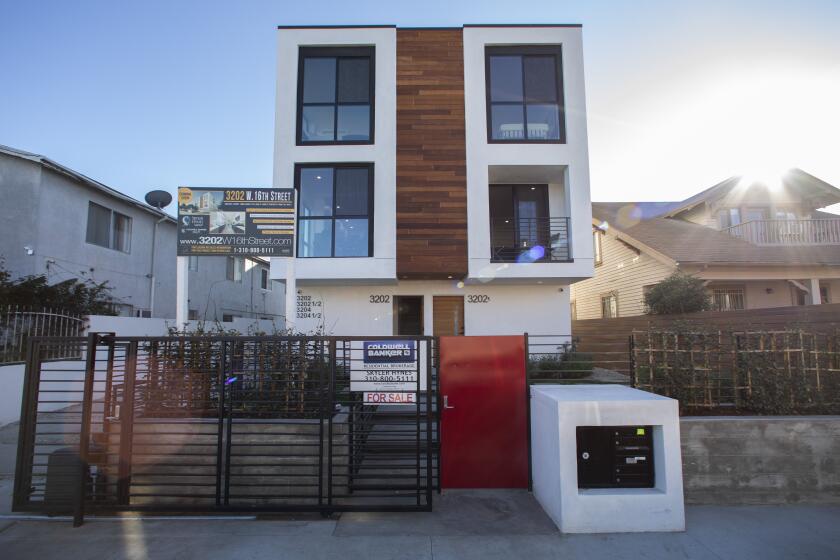Home buyers are losing hope as costlier loans sap affordability

First-time home buyers, already getting clobbered by bidding wars, now face a potential knockout punch: higher mortgage rates.
Costs for 30-year loans hit a more than two-year high of 3.69% last week, rising about 20% just since Christmas. Further increases are expected as the Federal Reserve, trying to curb inflation, hikes its benchmark rate. Thatâs a daunting prospect for entry-level buyers when affordability is already at its worst since 2018.
The pandemic housing rally is heating up again as the key spring selling season approaches, threatening to push new buyers beyond the brink of what they can pay. Their modest incomes put them at a disadvantage when competing against downsizing seniors and single-family landlords for the same moderately priced houses. The jump in borrowing costs is sapping their purchasing power, preventing them from bidding high enough to have a chance.
âHousing affordability is set to get crushed,â said Mark Zandi, chief economist for Moodyâs Analytics, who expects 30-year rates to climb above 4% this year.
The shared-ownership model, called tenancy-in-common or TIC, raised uproar in L.A. for displacing renters. Can one developer fix its tainted past?
âMany potential first-time home buyers will get locked out of homeownership, at least until house prices come back to earth or mortgage rates turn back down,â he said. âNeither seems likely, at least not soon, and certainly not in time for the critical spring home-buying season.â
Cassie Homan, a single Philadelphia renter in her 40s, scours listing websites every day, searching for a modest place in the New Jersey suburbs to be closer to family. Sheâs on a month-to-month lease to stay flexible. But in her budget of less than $200,000, homes go fast unless thereâs something seriously wrong.
She recently inquired about a remodeled two-bedroom house built in 1855 with an asking price of $140,000. But it was gone before she could see it, attracting three cash offers within two days. She considered another house only to discover that the seller was passing off the attic as a bedroom. A third property â listed without any photos â was off-limits to tours because a tenant was living there.
Homan said she hopes rising interest rates cause a downturn in prices, opening up more inventory. Short of that, âIâm screwed â I have no chance in hell,â she said. âIâll have to rent for the rest of my life.â
Home sellers profit from area development, including SoFi Stadium, site of Super Bowl 2022. Rents are up, too. Now, the city is less affordable.
Rising rates, at least in the short term, help shrink inventory even more. Homeowners are increasingly unwilling to move because theyâd have to give up their old, lower-cost mortgage and take on a more expensive one to buy a new place. That leaves fewer entry-level properties on the market.
And single-family rental firms scooping up houses by the thousands will keep buying because theyâre not dependent on mortgages, said Scott Buchta, head of fixed-income strategy at Brean Capital in Franklin, Tenn. That will continue to crimp supplies, especially in markets where the companies are most active, such as Atlanta, Phoenix and Nashville.
Sherry Bailey, an agent in Atlanta, said her buyers are constantly losing out to big landlords paying cash.
Bailey is working with a young woman with a government job and a budget of less than $200,000 who has been forced to look in North Georgia mountain towns, an hour and a half outside Atlanta. Still, in the time it takes the client to discuss possibilities with her mother, competitors swoop down, Bailey said.
âThe spring market hasnât even started,â she said, âand buyers are already discouraged.â
More to Read
Inside the business of entertainment
The Wide Shot brings you news, analysis and insights on everything from streaming wars to production â and what it all means for the future.
You may occasionally receive promotional content from the Los Angeles Times.












